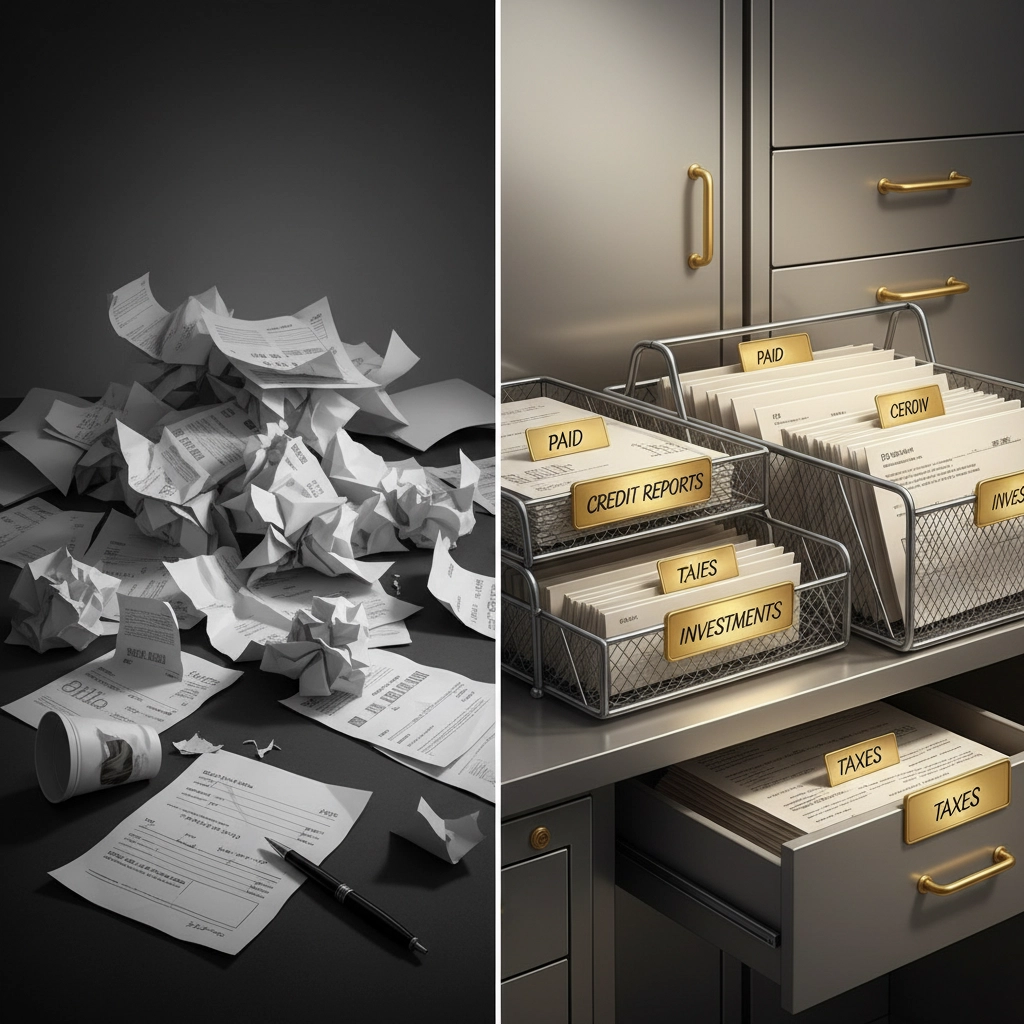How Long Does Credit Repair Take? The Real Timeline Experts Don't Want You to Know

Credit repair isn't the mysterious process many companies want you to believe it is. The truth is straightforward: most people see meaningful improvements in 3 to 6 months, though your specific timeline depends entirely on your unique credit situation.
There's no hidden timeline or secret method that credit repair companies are keeping from you. What determines how long your credit repair takes comes down to basic factors like the number of errors on your report, how quickly credit bureaus respond, and whether you're dealing with legitimate debts or simple mistakes.
The Real Credit Repair Timeline
When you start the credit repair process, you're working within a system governed by federal law. The Fair Credit Reporting Act requires credit bureaus to investigate disputes within 30 to 45 days. This isn't negotiable – it's the law.
For simple errors like incorrect account information, wrong addresses, or accounts that don't belong to you, corrections can happen within the first month. These are the quick wins that can boost your score immediately.
More complex situations take longer. If you're dealing with multiple collections accounts, charge-offs, or negotiating with creditors, expect the process to take 6 to 12 months for substantial improvements. The most challenging cases – those involving multiple derogatory marks, judgments, or tax liens – often require close to a year for meaningful progress.

What Actually Controls Your Timeline
Your credit repair timeline isn't random. Several specific factors determine how quickly you'll see results:
Number of Negative Items: Each account on your credit report requires individual attention. More accounts mean more disputes, more follow-up, and more time.
Type of Issues: Factual errors can be corrected quickly once identified. Valid debts that require negotiation or payment arrangements take significantly longer to resolve.
Credit Bureau Response Times: While bureaus have 30 days to respond by law, some are faster than others. Equifax, Experian, and TransUnion each have different processing speeds.
Creditor Cooperation: Some creditors are willing to work with you on goodwill deletions or pay-for-delete arrangements. Others refuse to negotiate entirely.
Your Documentation: Having proper documentation speeds up the dispute process considerably. Missing paperwork slows everything down.
Why There Are No "Secret" Fast Tracks
Here's what credit repair companies don't want you to understand: accurate negative information stays on your credit report for 7 to 10 years. No company, strategy, or "insider knowledge" can legally remove accurate information faster than this timeline allows.
Companies that promise 30-day fixes are typically targeting obvious errors or using aggressive dispute tactics that rarely work long-term. Some use techniques like disputing everything simultaneously, hoping credit bureaus will make mistakes in their investigations. This approach often backfires and can actually slow down legitimate repairs.
The most effective credit repair focuses on identifying genuine errors, negotiating where possible with creditors, and building positive credit history over time. There's no secret method because the process is governed by federal regulations that apply to everyone equally.

The Three Phases of Credit Repair
Understanding credit repair timelines becomes clearer when you break the process into phases:
Phase 1: Error Identification and Disputes (30-60 days)
This phase involves pulling your credit reports, identifying errors, and filing initial disputes. Simple factual errors can be corrected during this period, potentially providing immediate score improvements.
Phase 2: Follow-up and Negotiations (60-180 days)
More complex issues require follow-up with credit bureaus and direct negotiations with creditors. Collections accounts, charge-offs, and other derogatory marks are addressed during this phase.
Phase 3: Monitoring and Maintenance (Ongoing)
Credit repair isn't a one-time event. Maintaining your improved credit requires ongoing monitoring and addressing new issues as they arise.
Factors That Can Extend Your Timeline
Several circumstances can push your credit repair timeline beyond the typical 3-6 month range:
Multiple Collections Accounts: Each collection requires individual negotiation. Having several collections can extend the process to 8-12 months or longer.
Identity Theft Issues: Resolving identity theft can take 6-12 months, especially if fraudulent accounts were opened in your name.
Bankruptcy or Foreclosure: While you can't remove accurate bankruptcy or foreclosure information, rebuilding credit afterward typically takes 2-4 years for substantial improvement.
Unresponsive Creditors: Some creditors simply don't respond to correspondence or refuse to negotiate. This forces you to work exclusively through credit bureau disputes.
What You Can Do to Speed Up the Process
While there are no shortcuts, you can optimize your credit repair timeline:
Gather Documentation Early: Having account statements, payment records, and correspondence organized from the start prevents delays.
Focus on High-Impact Items: Address accounts with the largest negative impact on your score first. A single large collection removal often improves your score more than several small corrections.
Monitor Progress Weekly: Check your credit reports regularly to track changes and identify new issues quickly.
Build Positive History Simultaneously: While disputing negative items, focus on building positive payment history with current accounts.
Consider Professional Help: Credit repair services can handle the administrative burden and often have established relationships with creditors.

The Business Credit Connection
If you're a business owner, your personal credit timeline directly affects your ability to secure business funding solutions. Many business financing options require personal credit scores of 650 or higher. This makes personal credit repair a critical business strategy, not just a personal finance issue.
Business owners often need funding quickly, making the 3-6 month credit repair timeline feel frustratingly slow. However, alternative funding options like merchant cash advances can provide immediate capital while you work on credit improvement. The key is balancing immediate business needs with long-term credit health.
Setting Realistic Expectations
The most important aspect of credit repair timing is setting realistic expectations. If your credit score is 500, don't expect it to reach 750 in 30 days. A more realistic progression might look like:
- Month 1-2: Simple error corrections, potential 20-50 point improvement
- Month 3-4: Negotiated removals and deletions, additional 30-60 point improvement
- Month 5-6: Final disputes resolved, potential for 70-100 total point improvement
Remember, even a 100-point improvement might not take you from poor to excellent credit. Rebuilding credit is often a longer-term process that extends beyond the repair phase.
Beyond Credit Repair: Long-Term Success
Credit repair addresses past issues, but long-term credit success requires ongoing attention. After completing the repair process, focus on:
- Maintaining low credit utilization (under 30%)
- Making all payments on time
- Avoiding unnecessary new credit applications
- Monitoring your credit reports quarterly
The habits you develop during credit repair become the foundation for maintaining good credit permanently.
Taking Action Today
Understanding credit repair timelines helps you make informed decisions about your financial future. Whether you're looking to buy a home, secure business funding, or simply improve your financial options, starting the credit repair process today begins your timeline toward better credit.
If you're ready to begin credit repair, consider working with experienced professionals who understand both the legal requirements and practical strategies for success. The right guidance can help you navigate the process efficiently and avoid common mistakes that extend timelines unnecessarily.
Relevant Hashtags for SEO and Social Media:
#CreditRepair #CreditScore #CreditRepairTimeline #CreditRestoration #FixYourCredit #CreditRepairFacts #BusinessCredit #PersonalFinance #CreditImprovement #DebtManagement #CreditDisputes #CreditBureau #FinancialFreedom #CreditEducation #CreditTips #FICO #FCRA #CollectionRemoval #IdentityTheft #CreditUtilization #CreditMonitoring #SmallBusinessFunding #BusinessFunding #MerchantCashAdvance #DebtConsolidation #SBALoan #LinesOfCredit #EquipmentFinancing #ChromeHarisCapital #NJBusiness
